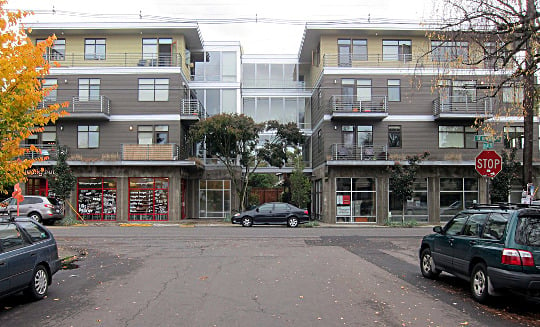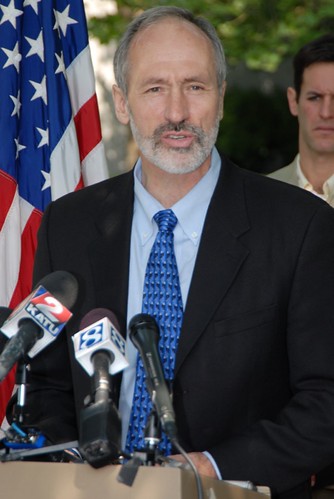As the city’s transportation director says Portland should stop giving away so much of its on-street parking space for free, a local parking expert is floating one way to do it.
From the embattled 20s Bikeway to Foster’s broken bike lanes to the chronic shortage of rental housing in low-car-friendly parts of town, residents’ annoyance over the lack of on-street auto parking in central Portland is making it harder for the city to become bike-friendlier. At the Oregon Active Transportation Summit Monday, parking consultant Rick Williams said a paid parking permit program could be the solution — but there are a couple catches.
First, he said, the city should rewrite its rules to let neighborhoods charge more for local parking permits than the systems cost to enforce. Ideally, he said, the city should raise neighborhood parking permit prices from their current level ($60 a year, in the few places where permits are used) to whatever the market will bear.
Second, to make the first option palatable, the city would have to promise that neighborhoods would get to keep the money and put it into better transit, walking, biking, paving — whatever it wants — in its own area.
That’d be a big switch from the way Portland currently runs its paid parking policy. Today, permit programs are only allowed to charge enough to cover enforcement and administration. Williams said this makes the price of parking artificially low; building and maintaining a parking space in central Portland would cost hundreds of dollars per year.
Even in areas where the city makes a profit from parking meters, such as downtown Portland, the city doesn’t directly reinvest the money in the area; it redistributes it. Parking revenue accounts for almost a third of the city’s general transportation budget, which the city then spends on projects like road repaving, bridge projects and so on.
The problem with this, Williams said, is that it undermines local support for parking districts.
“The public sector is going to have to agree that they’re not the ones who are making money on parking,” Williams said. “The city needs to make sure [neighborhoods] can keep the money.”
Williams’ concept didn’t come out of the blue. It’s the formula laid out by UCLA auto parking scholar Donald Shoup in his influential 2005 book The High Cost of Free Parking. But Williams said that though it’s been used in commercial districts, it’s never yet been put in place for a residential district in the United States.
Still, Williams said it’s the logical answer to neighborhood complaints about crowded curbsides. That’s the thinking behind the City of Portland’s parking permit system, he said: it’s designed to be something a neighborhood asks for, not something a city imposes against residents’ will.
“The philosophy is that if things are bad enough, they’ll come to you,” he said.



